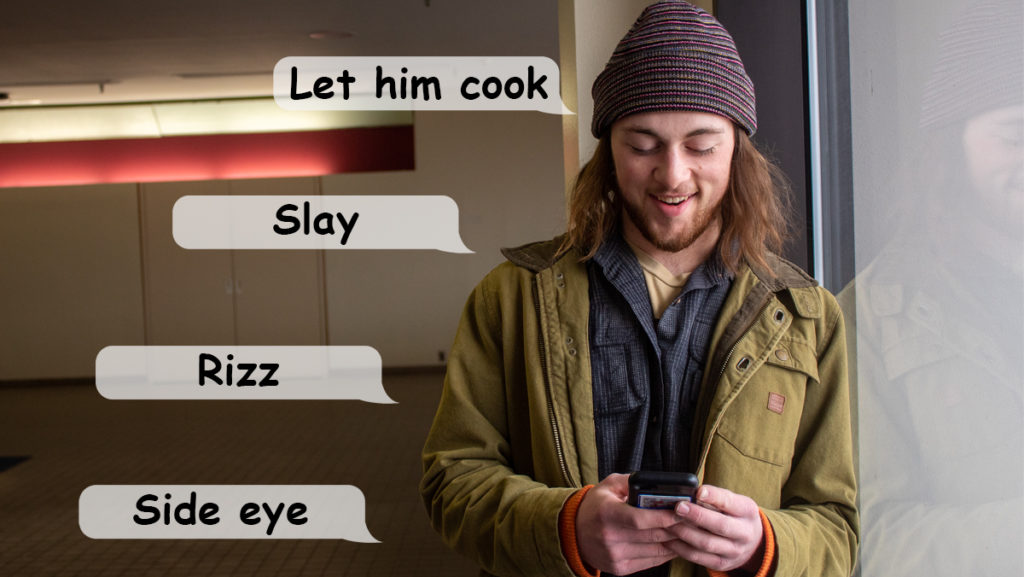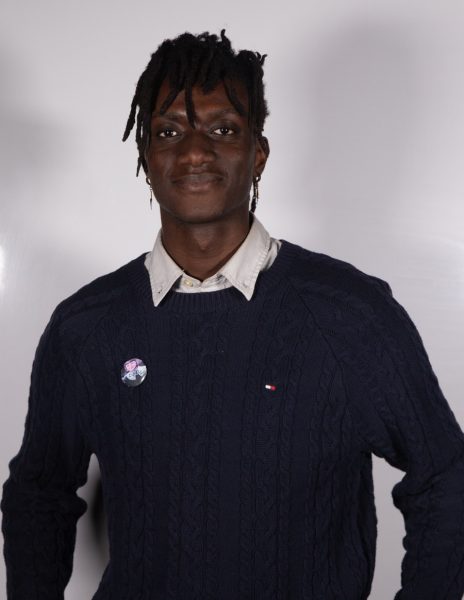While walking around a college campus, slang is present and can be heard in almost every single conversation. It is one of the few universally relatable topics that crosses over every culture. Most people use “slanguage” in their everyday speech, yet many probably cannot remember when they even started using specific terms.
Ithaca College students are no strangers to using slang in their day-to-day lives. Some of the most memorable words and phrases are yassified, let him cook, slay, purr — and the list goes on.
There are terms considered slang in some minority groups but not in others. There is ethnic and historical slang, there is slang that has changed meaning over time and there is even non-verbal slang within the Deaf community. Junior Arthur Robbins-Geller said the main term he hears around campus is “slay.”
“I’ve heard other words too, like ‘rizz’ is a new word, and I still don’t actually know what it means,” Robins-Geller said. “The language of slang is interesting though because there’s the mode of thinking that language is just whatever Miriam Webster says, but then there’s the day-to-day we actually use, and I think the truth is somewhere in between the two.”
Megan Graham, assistant professor in the Department of Writing, with expertise in grammar, linguistics and language, said many words or phrases people use as slang are just non-dominant varieties of English.
“It’s interesting because [slang] isn’t connected to the actual lexical meaning of the word,” Graham said. “There’s this problem with the etymology of slang because we don’t know when terms started being used. Because they’re being used orally. … For example … when people say things like, ‘Oh, you know, things be like that sometimes,’ that’s African American [vernacular] and it gets appropriated into white culture as slang. But it isn’t slang to everybody.”
Most of the slang that has been appropriated from ethnic minorities is popularized on the internet, even TikTok slang, like “side-eye,” which means criticism toward another person, or “let him cook,” which means letting someone do their thing.
“One of the problems we have with slang is that up until recently we didn’t have a … body of written examples from the people who use the language,” Graham said. “Now you can just go on [the internet] and find people using that language originally and naturally.”
The meaning of words has also changed over time. For example, Graham said the word “Punk” has changed from the 1920s until now. In the ’20s, “punk” referred to a “gay male sex worker.” It then went on to mean “delinquent” in the ’50s, and by the ’70s, it described a countercultural music subculture until it became what it is now, Graham said.
On the sports side of the spectrum, two football players at the college, first-year student Kendal Burno and junior Sam Kline, said the team uses its own language on the field. Kline said one slang term that gets used often is “mossed” or “on his head,” which is said when someone catches a ball over the top of someone else’s head. Usually “mossed” goes along with the physical motion of patting the top of your head.
“Another thing … we don’t say it so much on the team, but we say it on my high school team,” Burno said. “When you’re trying to ‘decleat’ somebody, the idea is that you hit them so hard on the play that you knock them out their shoes. Like, you decleat them. That’s one that we used to say a lot.”
Slang is often believed to be inherently verbal, but that is not always the case. Lisa Witchey, lecturer in the Department of Speech, Language, Pathology and Audiology, said non-verbal slang exists within the Deaf community. Witchey teaches as an American Sign Language instructor in the Deaf minor program at the college.
“Because my class is not verbal, I really don’t hear a lot of [verbal] slang,” Witchey said. “[Non-verbal] slang has been around from the very beginning. … Someone starts a sign if they feel it’s within the parameters of the language, and it spreads.”
Witchey demonstrated some ASL slang. One expression meaning “true biz” is signed with the words “true” and “work” combined. It is used as a reaction or confirmation and can mean that the person is very skeptical — like, “You won $100? True biz?”
“[Your] eyebrows are raised, you lean forward to ask the question,” Witchey said. “Or, you could have that same sign, but with a different [facial] expression, and it could be a confirmation, “Yes, yes, it is true.”
One of the first ASL slang signs from back in the ’80s that Witchey learned was “gulp fish.” It involves moving your finger down your throat as if thirsty and then making the sign for “fish.” The direct ASL translation is “gulp fish,” but it is used to say you or someone else is gullible. It can also be used to say that someone made a mistake themselves and was not thinking.
Whether it be verbal or nonverbal dialect, words for new gender identity signs, technology, internet culture and more are always popping up.
“People tend to think that language is done,” Graham said. “like we’re finished. Which is weird. It’s constantly evolving and we’re in the middle of it. We’re always in the middle of the project of doing language.”















